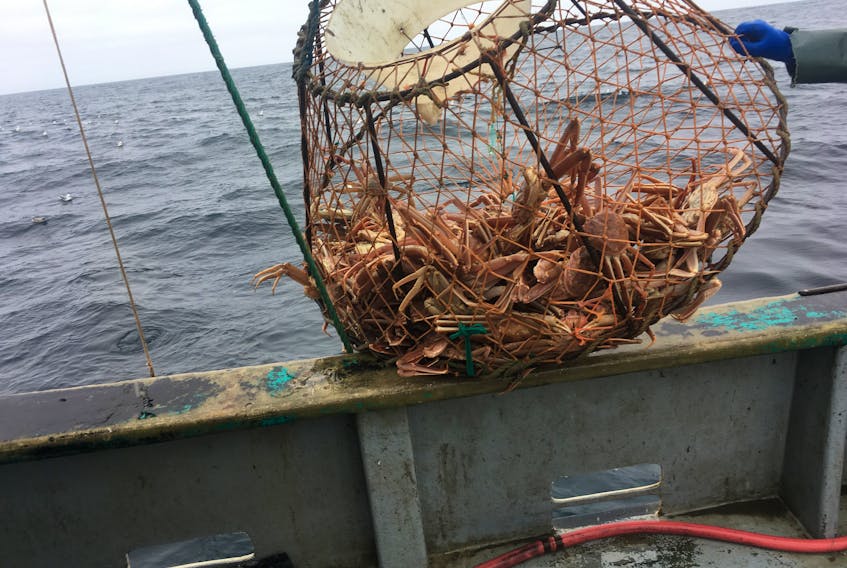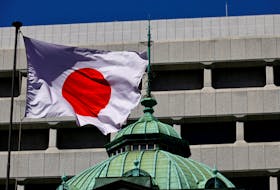By Derek Butler
The FFAW has recently been on the bandwagon of transparency in fish price negotiations. “Fairness and transparency,” they say.
If only it were so simple.
The FFAW already has access to production reports from the province, proxies for yield from calculating landed volumes vs production, market reports provided by consultants and international trade media, and export prices from international trade databases.
And they win most of the price negotiations by a price panel appointed by government.
The irony of it all — or the hypocrisy of it, to be “fair” — is that the FFAW continually says Maritimes harvesters get more for their crab than Newfoundland and Labrador harvesters.
Yet that happens without collective bargaining, no minimum prices, no forced arbitration, no process to provide market and production information. (Gee, how do they manage? Ah, they don’t have an FFAW).
And while the FFAW complains that N.L. harvesters get less money for crab than in the Maritimes, the discrepancies in price have actually been studied and reported on many times over the past 20 years. It has been detailed in numerous reports including three by the same consultant.
FFAW don’t want information or transparency, they want someone to swallow their version of the story, hook, line and sinker, despite the facts. Saying they want transparency and fairness is a better story, but it rings hollow when you look into the truth of it.
The FFAW doesn’t want the answers it gets. That’s the issue.
They make the same distorted arguments about crab pricing here versus the Maritimes despite clear reports detailing the differences.
The FFAW don’t want information or transparency, they want someone to swallow their version of the story, hook, line and sinker, despite the facts.
They want transparency and fairness is a better story, but it rings hollow when you look into the truth of it.
And what about this whole collective bargaining regime for fish prices?
It’s Joey Smallwood’s last piece of legislation, before his government was defeated after 22 years of uninterrupted reign.
It’s was a price-setting negotiation intended to ensure inshore independent fishermen got a fair price through collective bargaining negotiations, but has now transmorphed into minimum-price negotiations for a well-entrenched boat-owners association who have their own “union” to negotiate a minimum price, but no crew shares, no job security, and no job seniority.
If you want the definition of anachronism, look no further.
The fish we are negotiating is still in the water while we talk. We use the market reports and our respective best senses of the market to negotiate minimum prices before a pound is landed at the wharf.
We are using collective bargaining to price fisheries – mostly for wholesale, commodity volumes — worth hundreds of millions of dollars before we have made a single sale.
Then, once we start buying at wharves around the province, we pay harvesters a minimum price, set for the season.
We do the payroll, EI, workers’ comp premiums, all for multi-million dollar enterprises (“independent businesses” until someone says they should register and pay their own workers’ compensation assessments).
The enterprise owner — and crew, but not much transparency there — is made whole, paid up every week or two. Producers then own the product, finance it, produce it, inventory it, ship it and sell it. The downside market risk is ours. That is the business we are in, for better and for worse.
And we don’t have to apologize for that.
We buy from thousands of harvesters, collect millions of pounds from hundreds of wharves, employ thousands, and transport and sell it all the world over.
Our industry is worth over $1 billion a year to the province. We do that year in and year out, in good and bad times.
But doing the union’s bidding would be giving away our businesses. It would not be “negotiating,” it is not how business is conducted, and it is not how we sell in the market.
It might be union mentality, but thank God they’re not selling our stuff in the real market.
I can just see the adverts now: “Buy our &#%@$* stuff, or we’ll stop selling to you!” — Hardly an adult conversation, but it’s one we face every season here at home, sadly. (On a positive note, most of the relationships are positive, despite the regime we operate in, and I have to think, a begrudging respect of the work we all do).
FFAW President Keith Sullivan said the FFAW wants “a few basic things.”
It appears they want our businesses, which does sound pretty simple.
It reminds one of the old adage about when a dinner guest starts touting his honesty, you’d best start counting your spoons.
Derek Butler is the executive director of the Association of Seafood Producers. He writes from St. John’s.
RELATED









